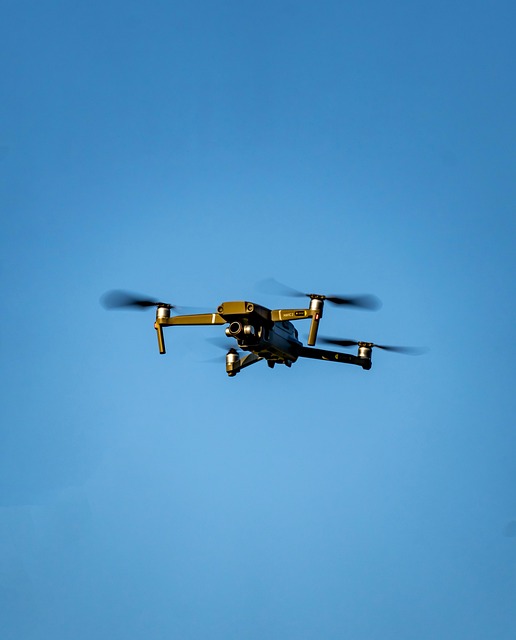Drone security patrols leverage advanced sensors, cameras, and AI to enhance surveillance. They offer improved mobility, coverage, and target acquisition compared to traditional security measures. In law enforcement, smart tracking technology enables real-time individual identification, revolutionizing public safety while raising privacy concerns that require ethical regulations. Drone patrols provide comprehensive risk assessment, efficient resource allocation, and swift response times in urban and rural settings.
“Drone security patrols are transforming surveillance methods, ushering in a new era of public safety and security. This innovative technology leverages smart tracking drones equipped with advanced identifying capabilities to efficiently target and monitor suspects. By integrating these drones into law enforcement strategies, we witness a significant shift towards proactive crime prevention. However, as this technology advances, careful consideration of ethical dilemmas, particularly regarding privacy, becomes paramount in harnessing the full potential of drone security patrols.”
Drone Security Patroles: A New Era of Surveillance
Drone security patrols are ushering in a new era of surveillance capabilities, offering unprecedented aerial insights for public and private entities alike. These advanced drones are equipped with cutting-edge sensors, cameras, and AI algorithms that enable them to swiftly identify and track suspects, monitor high-risk areas, and provide real-time data during critical operations.
Compared to traditional ground-based security measures, drone security patrols present a range of advantages. They offer enhanced mobility, allowing for rapid deployment in diverse environments; their bird’s-eye view provides comprehensive coverage; and their advanced technology ensures precise target acquisition. As the demand for robust security solutions continues to grow, drone security patrols are poised to play an integral role in maintaining safety and order in both urban and rural settings.
Smart Tracking Technology: Identifying Suspects Efficiently
Smart tracking technology has revolutionized suspect identification in the realm of law enforcement, and drones are at the forefront of this advancement. Drones equipped with cutting-edge AI algorithms can efficiently scan large areas, detecting and tracking suspects with remarkable accuracy. By combining high-resolution cameras, thermal imaging, and advanced data analytics, these drones offer a powerful tool for drone security patrols. They can identify individuals in real time, even in challenging conditions, enhancing the capabilities of law enforcement agencies significantly.
This technology enables quick response teams to navigate labyrinthine urban landscapes and dense foliage with ease, swiftly locating targets without compromising safety. The ability to remotely operate drones for surveillance has proven invaluable, especially in high-risk situations. With their sleek design and advanced features, smart tracking drones offer a game-changer solution, ensuring efficient and effective suspect identification during critical operations.
Drones' Role in Enhancing Public Safety and Security
Drone technology has emerged as a powerful tool for enhancing public safety and security, offering unprecedented capabilities in surveillance and monitoring. With their advanced sensors, high-resolution cameras, and real-time data transmission capabilities, drones can swiftly and accurately gather information from hard-to-reach areas or dense crowds. This enables law enforcement agencies to make informed decisions during critical situations, such as mass gatherings, natural disasters, or urban search and rescue operations.
Moreover, drone security patrols can provide a comprehensive view of an area, allowing for more effective risk assessment and incident management. Their ability to hover in place, cover vast distances, and capture detailed imagery ensures that no potential threats go unnoticed. By integrating drones into public safety protocols, authorities can improve response times, better allocate resources, and ultimately safeguard communities more efficiently.
Ethical Considerations: Privacy vs. Crime Prevention
The integration of smart tracking drones into law enforcement strategies raises significant ethical debates, particularly concerning privacy and crime prevention. On one hand, drone security patrols offer advanced capabilities for monitoring public spaces, potentially deterring criminal activities, and facilitating swift response times. This technology can aid in identifying suspects and gathering evidence, thereby enhancing overall public safety.
However, the very nature of drones flying overhead and equipped with high-resolution cameras invites privacy concerns. The ability to track individuals without their knowledge or consent could infringe on personal freedoms and create a surveillance society. Balancing the benefits of crime prevention against potential violations of privacy rights is an ongoing challenge that requires robust regulations and transparent practices to ensure drone operations adhere to ethical standards.
Drone security patrols represent a significant advancement in public safety, leveraging smart tracking technology to efficiently identify suspects and enhance overall security. While ethical considerations regarding privacy must be addressed, the potential of drones in preventing crimes and protecting communities outweighs these concerns. As this technology continues to evolve, a balanced approach that respects individual freedoms while harnessing the power of drone security patrols is essential for building safer urban environments.
